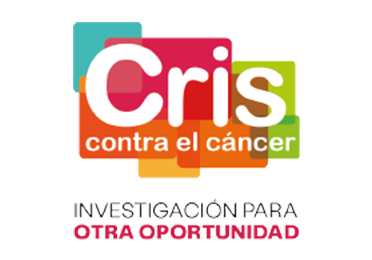
- Vall d’Hebron Hospital has taken a very active part in the COMBAT multicenter study recruiting patients with advanced pancreatic cancer who have not responded to conventional chemotherapy, and a combination of immunotherapy and chemotherapy has not only proved safe and effective, it has achieved promising results
- The drug used in this treatment strategy has been classified by the European Medicines Agency as an “orphan drug”, a name given to medicines that appear promising for tumors requiring alternative treatments
- The growing number of cases of pancreatic cancer over the last few years and the lack of effective treatments means the development of new treatment strategies is increasingly necessary
Barcelona, May 25, 2020.– A new combined strategy for treating pancreatic cancer has shown promising results. The approach combines immunotherapy with chemotherapy to fight this increasingly common form of cancer. Results from the COMBAT study suggest that the addition of chemotherapy could be the key to making immunotherapy, which until now has not been effective in treating pancreatic cancer, a useful treatment for pancreatic cancer in the medium-term future.
Dr. Teresa Macarulla, medical oncologist at the Vall d’Hebron University Hospital and principal investigator with the Gastrointestinal and Endochrine Tumors Group of the Vall d’Hebron Institute of Oncology (VHIO), led by Dr. Josep Tabernero, has taken an active part in this study, whose results are published today in the journal Nature Medicine. The study was directed by Dr. Manuel Hidalgo, of Cornell Hospital in New York (United States). In Spain, as well as the VHIO, the University Clinic of Navarra and the Gregorio Marañón Hospital, La Paz Hospital, and Fuenlabrada Hospital (the last three of these in Madrid) have all been involved.
“Although we must be cautious because the study included a modest number of patients, it is a promising result allowing us to develop immunotherapy to treat pancreatic cancer at last. The results show that both a considerable response rate and a longer-than-expected duration of this response have been achieved,” said Dr. Macarulla.
Promoting infiltration into the tumor
Patients with pancreatic cancer who had received at least initial chemotherapy treatment and had proved refractory to it were recruited for the COMBAT multicenter phase II trial. “Other immunotherapy tests had been shown to be ineffective in treating these tumors, so the idea was to change the biology of the tumor to achieve more favorable circumstances for responding to immunotherapy. To do this, two immunotherapy strategies were combined with the chemotherapy,” said Dr. Macarulla.
To achieve these more favorable circumstances for immune system to act, the test combined pembrolizumab – a drug that attaches itself to the protein PD-1, which is found in T cells and, if blocks, helps the immune system to destroy the cancer cells – with BL-8040, an antagonist of CXCR4 that encourages the infiltration of T cells into the tumor. These two drugs combined already show a degree of activity which is promoted when chemotherapy treatment is added, increasing the general survival from 3.3 months to 7.8 months. “The data obtained suggests that blocking CXCR4 and PD1 can increase the benefit of chemotherapy in pancreatic cancer, and this justifies confirmation in a subsequent randomized test,” said Dr Macarulla, who added that in January BL-8040 was classified as an orphan drug by the European Drug Agency, showing how important it is to find new, effective treatments for the disease.
An increasingly common cancer
Pancreatic cancer currently has a poor prognosis, with a five-year survival rate of less than 10%. The lack of improvement in survival rates and increase in cases over the last few years have led to predictions that pancreatic cancer will become the second most common cause of death by cancer in the United States by 2030. In 2018 in Spain there were already more deaths from pancreatic cancer than from breast cancer, making it the third biggest cause of death by tumor.
Despite the efforts devoted to pancreatic cancer research, there are few active treatments for patients and, until now, none based on immunotherapy has managed to achieve results. “It is very important to continue developing new alternative treatments, particularly if we bear in mind that cases of this type of tumor have continued to grow over the last few years while no new, effective treatments have been developed. This study opens a door which could be very promising in the future, which justifies carrying out a randomized trial to provide confirmation,” concluded Dr. Macarulla.










